 | Henry Parr Hamilton - Conic sections - 1834 - 240 pages
...equation containing the values of y at the points P, p will be 4,m 4-mR y -- y + — — = °- (Art. 53.) Now, since in any quadratic equation the coefficient...to the sum of the roots with their signs changed, 4,m — = PM + pm. a But O being the middle point of Pp, 2 2m a Now m is constant, and a remains the... | |
 | John Radford Young - Equations, Theory of - 1835 - 304 pages
...the first term, or highest power of x, has the coefficient unity, the coefficient of the second term is equal to the sum of the roots with their signs changed ; the coefficient of the third term is equal to the sum of the products of every two roots with their... | |
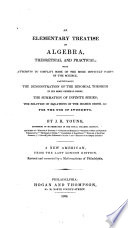 | John Radford Young - 1839 - 332 pages
...there is one change, and one positive PROPOSITION V. The coefficient of the second term in any equation is equal to the sum of the roots with their signs changed ; the coefficient of the third term is equal to the sum of the products of every two roots with their... | |
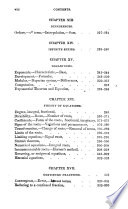 | Stephen Chase - Algebra - 1849 - 348 pages
...• • • •— &C. Jn= ± aia2aso4as . . . a*. , That is, (I.) The coefficient of the second term is equal to the sum of the roots with their signs changed (§ 213. 3). (2.) The coefficient of the third term is equal to the sum of the products of the roots... | |
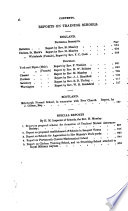 | Great Britain. Committee on Education - School buildings - 1850 - 790 pages
...formed with n things taken r together. 2. Show that in any equation the co-efficient of the second term is equal to the sum of the roots with their signs changed. 3. Show that in a series of converging fractions the terms are alternately less and greater than the... | |
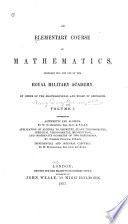 | Royal Military Academy, Woolwich - Mathematics - 1853 - 476 pages
...of the equation and the coefficients of the several terms. (1). The coefficient of the second term is equal to the sum of the roots with their signs changed. (2). The coefficient of the third term is equal to the sum4 of the products of the roots, taken two... | |
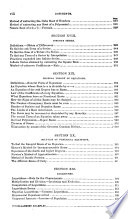 | Elias Loomis - Algebra - 1855 - 356 pages
...equation mto another whose second term is wanting. Ans. j/'-ss Since the coefficient of the second term is equal to the sum of the roots with their signs changed, it is obvious that when the second term of an equation is wanting, the sum of the pos>tive roots must... | |
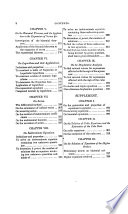 | John Radford Young - 1857 - 324 pages
...there is one change, and one positive PROPOSITION V. The coefficient of the second term in any equation is equal to the sum of the roots with their signs changed ; the coefficient of the third term is equal to the sum of the products of every two roots with their... | |
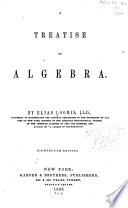 | Elias Loomis - Algebra - 1858 - 394 pages
...equation into another whose second term is wanting. Ans. 7/"-78 Since the coefficient of the second term is equal to the sum of the roots with their signs changed, it is obvious that when the second term of an equation is wanting, the sum of the positive roots must... | |
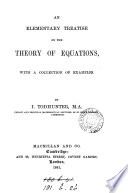 | Isaac Todhunter - Equations, Theory of - 1861 - 330 pages
...have the following results. In any equation in its simplest form the coefficient of the second term is equal to the sum of the roots with their signs changed ; the coefficient of the third term is equal to the sum of the products of every two of the roots with... | |
| |